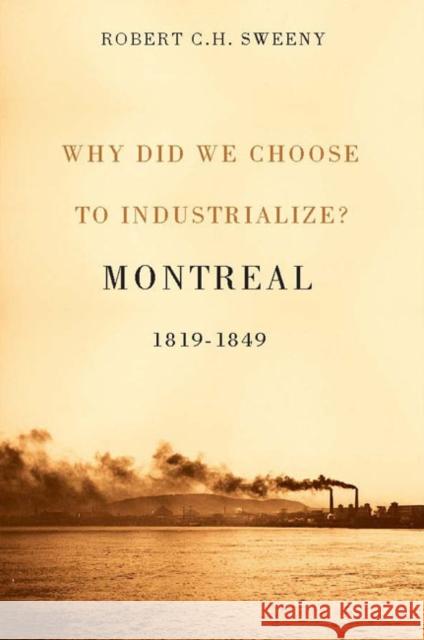Why Did We Choose to Industrialize?: Montreal, 1819-1849 Volume 29 » książka
Why Did We Choose to Industrialize?: Montreal, 1819-1849 Volume 29
ISBN-13: 9780773545373 / Angielski / Twarda / 2015 / 456 str.
Why Did We Choose to Industrialize?: Montreal, 1819-1849 Volume 29
ISBN-13: 9780773545373 / Angielski / Twarda / 2015 / 456 str.
(netto: 172,59 VAT: 5%)
Najniższa cena z 30 dni: 179,00
ok. 30 dni roboczych.
Darmowa dostawa!
The choice to industrialize has changed the world more than any other decision in human history. And yet the three prevailing explanations - the technical (new energy sources), the Marxist (new social relations), and the neo-liberal (people became more industrious) - are inadequate in making sense of this fundamental change. In mid-nineteenth-century Montreal, as in other early industrializing societies, change occurred as a result of the choices people made when faced with unprecedented opportunities and constraints. Montreal was the first colonial city to industrialize. Its overlapping French and English legal traditions mean that people's actions were exceptionally well documented for a North American city. Robert Sweeny s novel reading of sources like city directories, ordinance surveys, monetary protests, and apprenticeship contracts leads him to develop important critiques of both mainstream and progressive historiography. He shows how the choice to industrialize was tied to the development of completely new ways of thinking about the world on three inter-related levels: how should we relate to each other, to property, and to nature? In Montreal, as in all the other early industrializing societies, thought preceded action. Sweeny illuminates the personal and familial decisions that tens of thousands of people made by the mid-nineteenth century which already prefigured much of what industrialized Montreal would look like in 1880. At a moment when global conflict is tied to resources and climate change, Sweeny shows how fundamental decision making can determine widespread social change. Informed by four decades of scholarship, Why Did We Choose to Industrialize? Is a politically engaged argument about history, a sustained reflection on sources and method in historical practice, and a singular vantage point on the ideas that have shaped historical understandings of industrialization."











